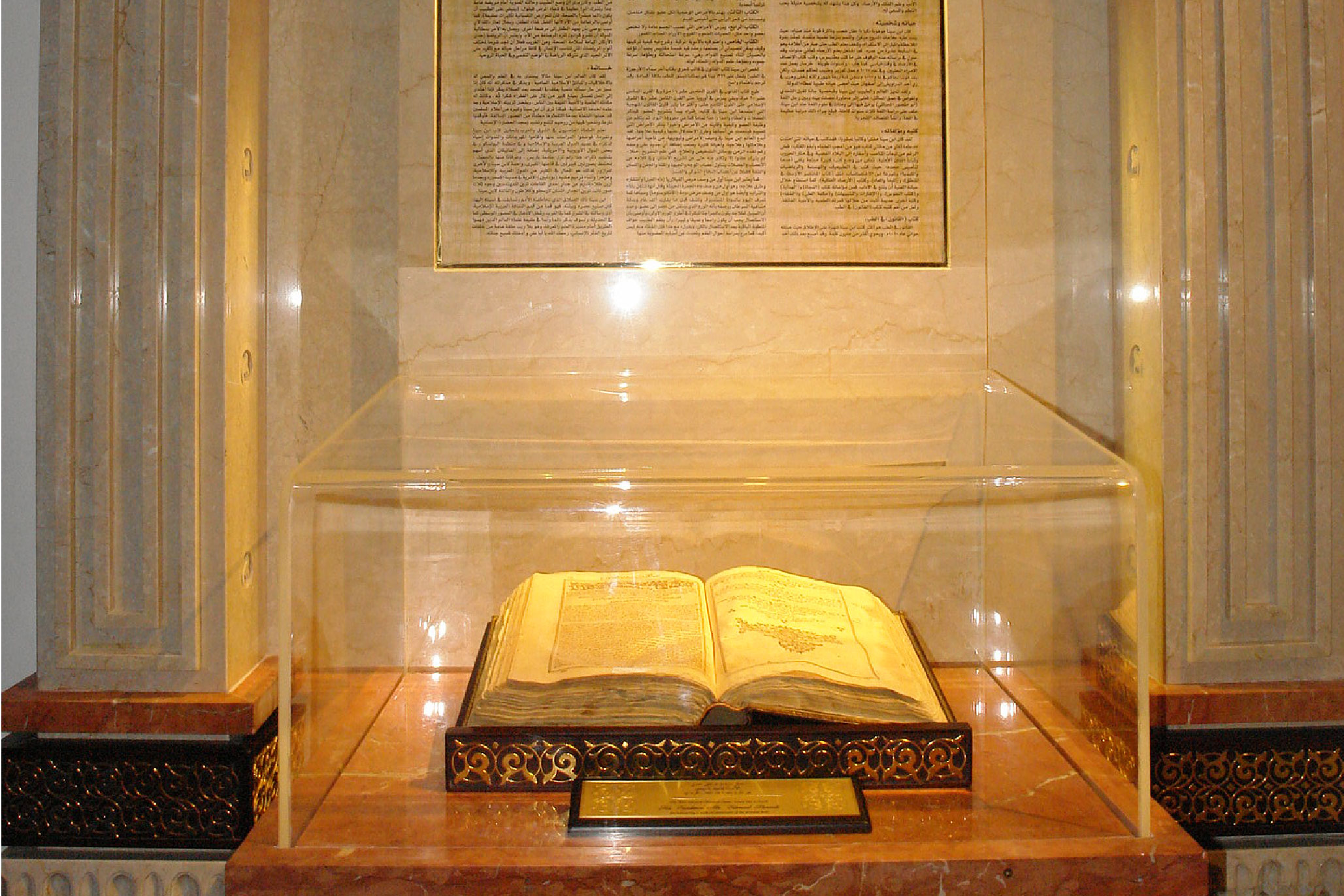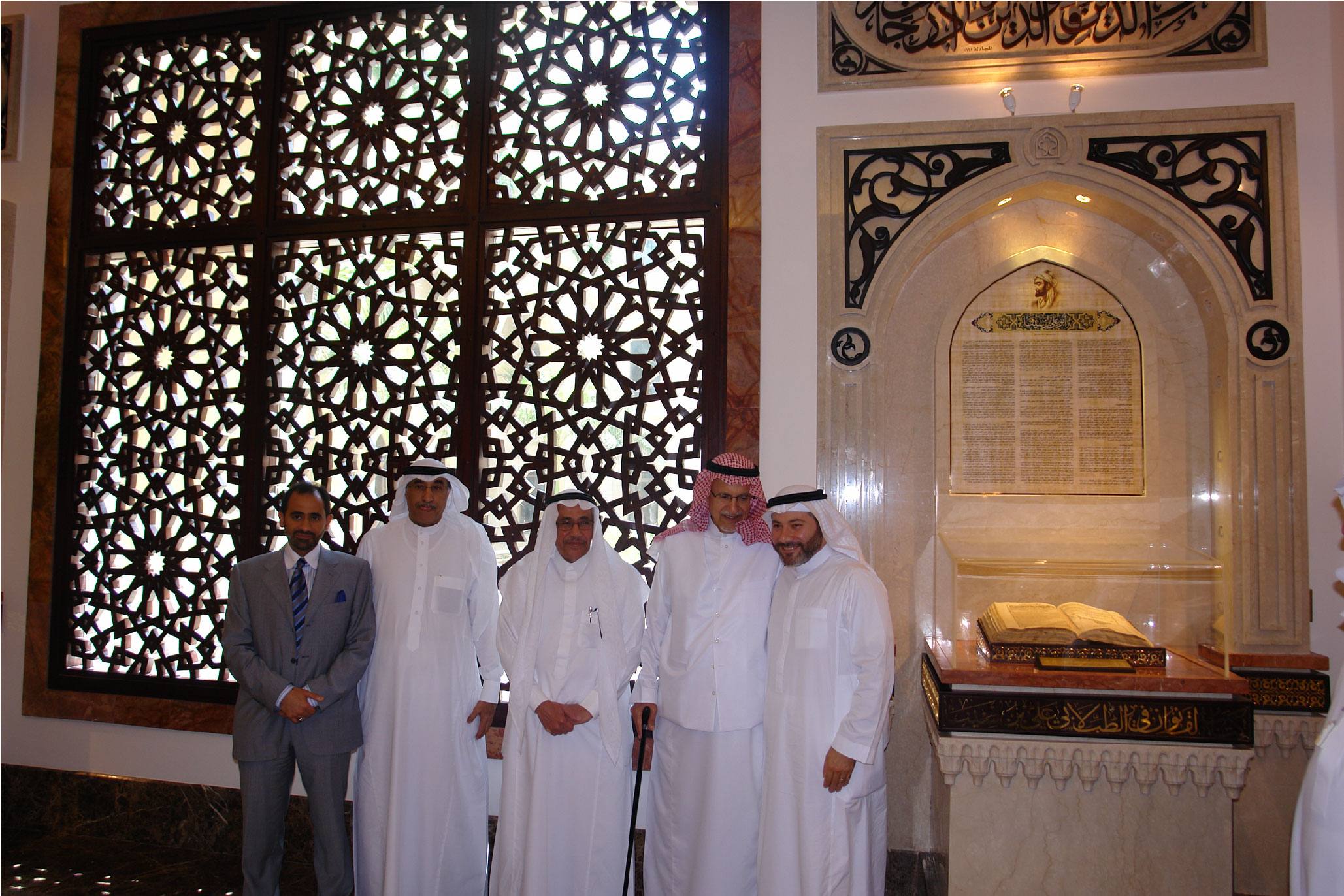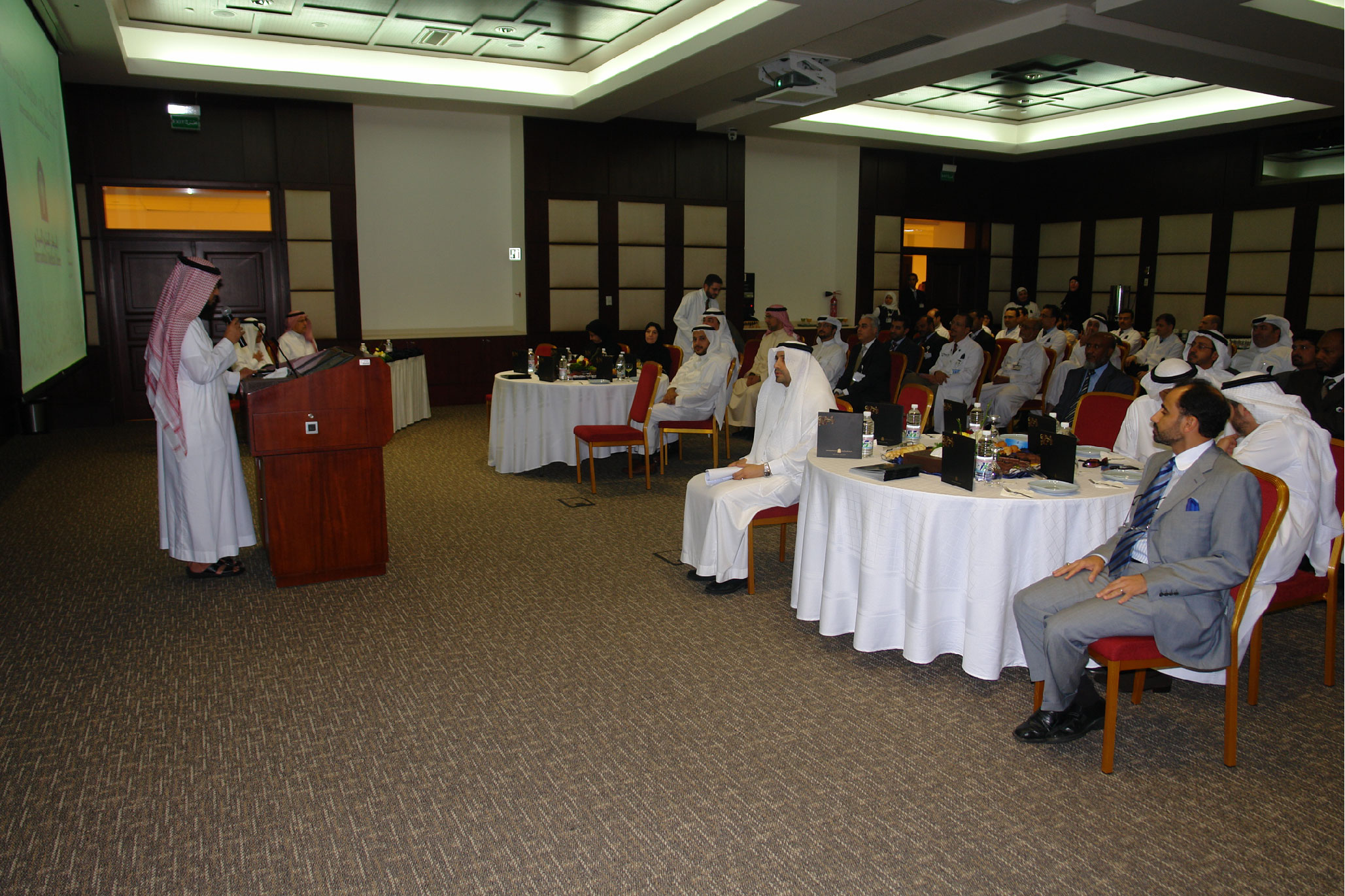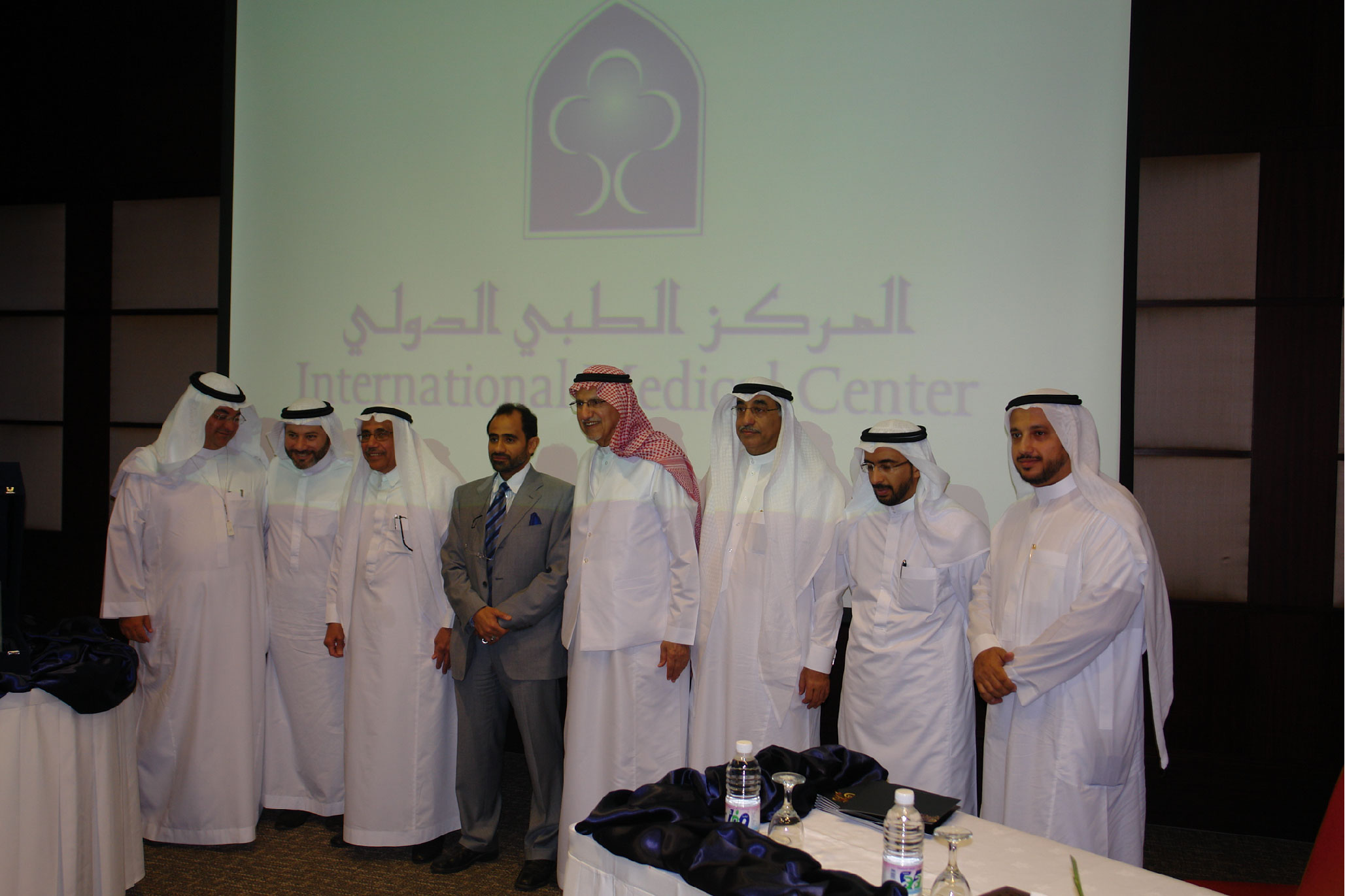Avicenna Monument
By the age of ten, Avicenna had memorized the Quran. He studied poetry, mathematics, physics, and then medicine. He became a qualified physician by the age of eighteen and wrote his book the “Canon of Medicine” that was used as a medical textbook in European universities for 500 years. This book is one of the most prominent and significant scientific medical books in the history of mankind.
In recognition of the importance of combining knowledge with deeds, IMC dedicated a memorial monument adjacent the prayer hall in honor of the father of medicine, Abu Ali Hussein Ibn Sina (Avicenna) and his most important work, with a brief biography of his life. Protected in a glass case and glistening marble stone, it is a true treasure: an original and one of the oldest copies of the book that Ibn Sina wrote on the laws of medicine. This copy contains 268 authenticated pages dating from 1593AD.
It was printed in Rome using the (topographic) method and was donated to IMC by Professor Edmund Baroudi through Sheikh Mohammed Ibrahim Ali-Issa.
Next to this monument, is the Quran verse “Do good deeds lavishly, without stint, and give deep thought to their steady flow” And [thus should you all, O believers,] do righteous deeds: for, verily, I see all that you do!” (Surah Saba 34:11).
It is best interpreted by encompassing the secret to any success; learning lessons from the past, hard work, economizing without jeopardizing quality and scrutinizing every step of any process. The wall also holds the oath taken by the medical team with a picture of King Abdullah receiving the oath at the inauguration of IMC 2006.
This monument shows the elements of success which are contemplating and learning from history, working hard in the present, and setting goals and plans for the future. These monuments were erected on Monday, December 29, 2008.
IMC Way
- An original copy of one of the oldest manuscripts authored by Ibn Sina
